Georgina Kakoudaki
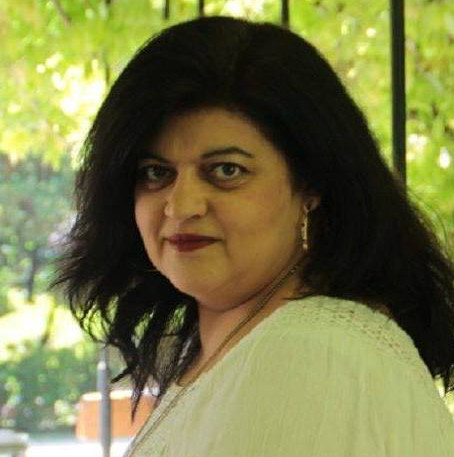
Georgina Kakoudaki is a theatre director, theatre educator and theorist. Her career in theatre, as well as theatre and education spans over 25 years and reflects her diverse experience and expertise.
Kakoudaki holds a Master’s degree in Theatre from the Theatre Studies Department of the Philosophical School of the National and Kapodistrian University of Athens and has co-authored, participated in and edited publications on directing, film and film aesthetics, experiential and theatre education and other subjects, published by prominent publishing houses in Greece and organizations like the National Theatre of Greece or the Educational Policies Institution.
Since 2009, Georgina has been directing professional theatre performances for adolescent audiences focusing on the reinvention of classical texts of ancient Greek and world theatre on the contemporary stage. Her directorial work includes: Sophocles’ Antigone, Euripides’ Helen, Aristophanes’ The Birds and The Clouds, Shakespeare’s A Midsummer Night’s Dream, Goethe’s Faust as well as contemporary plays based on ancient Greek tragedies like the devised Vivid Film/ After the Foam (based on Aeschylus’ The Persians) and Jack Thorne’s Burying your brother (based on Sophocles’ Antigone). She has also collaborated with over 30 theatre and dance companies as a dramaturg and has organized a large number of New Artists festivals alongside a series of organizations and theatres.
Georgina has directed a series of site-specific performances inspired by political, science and literary figures (Pericles, Pythagoras, Lafcadio Hearn) as well as the historical narrative imprint of Greek cities (Athens, Heraclion, Pilion area etc), as part of her artistic research in merging the past and the present through the creative and educational force of theatre.
As an educator, Georgina has taught theatre as education and other related topics in Theatre Studies (University of Patras, University of Peloponnese in Nafplio, Greece) and Pedagogy University departments (University of Athens, University of Thessaly in Volos, Greece) and has led experiential workshops and lectures at universities and theatre organizations abroad (Mexico, Iran, China, Iceland, Serbia, Belarus, Lithuania, Belgium, etc). She has taught drama at numerous public primary schools, high schools as well as public sector educational organizations in Greece. Georgina was also Head of the National Theatre of Greece Library and Archive (1997-2004).
Georgina is an active member of the staff of the Pitching Lab workshop of the International Short Film Festival in Drama and has taught film dramaturgy and aesthetics at a number of educational organizations for adult education.
She currently teaches Theatre History and Dramaturgy at the Athens Conservatoire Drama School and the Praxi Epta drama school. Since April 2016, she is co-curator of Educational Programmes and Head of the Epidaurus Lyceum – International summer school of ancient drama of the Athens and Epidaurus Festival.
During the last few years, Georgina has presented her work as a leader in the fields of ancient Greek drama and the education of young artists and students in international forums and events hosted in Greece and abroad.
2017
PRACTICAL WORKSHOP
Antigone: The Right to Speak
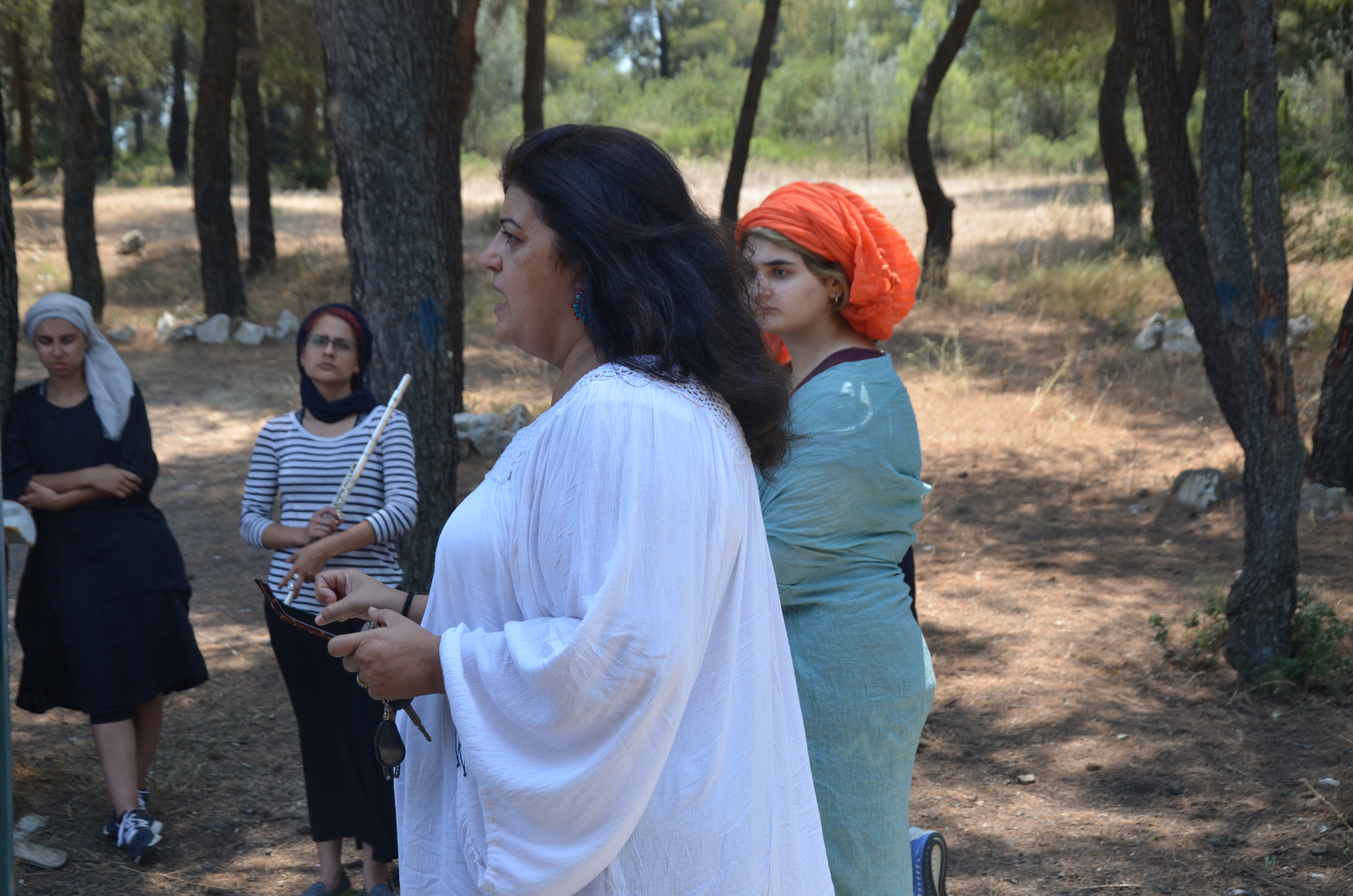
A theatrical, educational workshop exploring the ideals and conflicts in Sophocles’ Antigone that aims to encourage beginners of theatre to find their own voice through techniques such as public speaking, forum theatre practices, rhetorics, ensemble and individual improvisation. The workshop will also examine common approaches to the play, from Lévi-Strauss’ theory of duality to the gender-oriented discussion led by Judith Butler, ultimately enabling us to understand our behaviour and our responsibilities as citizens.
MASTERCLASS
Movies Under the Stars: The Outsider in Ancient Drama as Portrayed in World Cinema
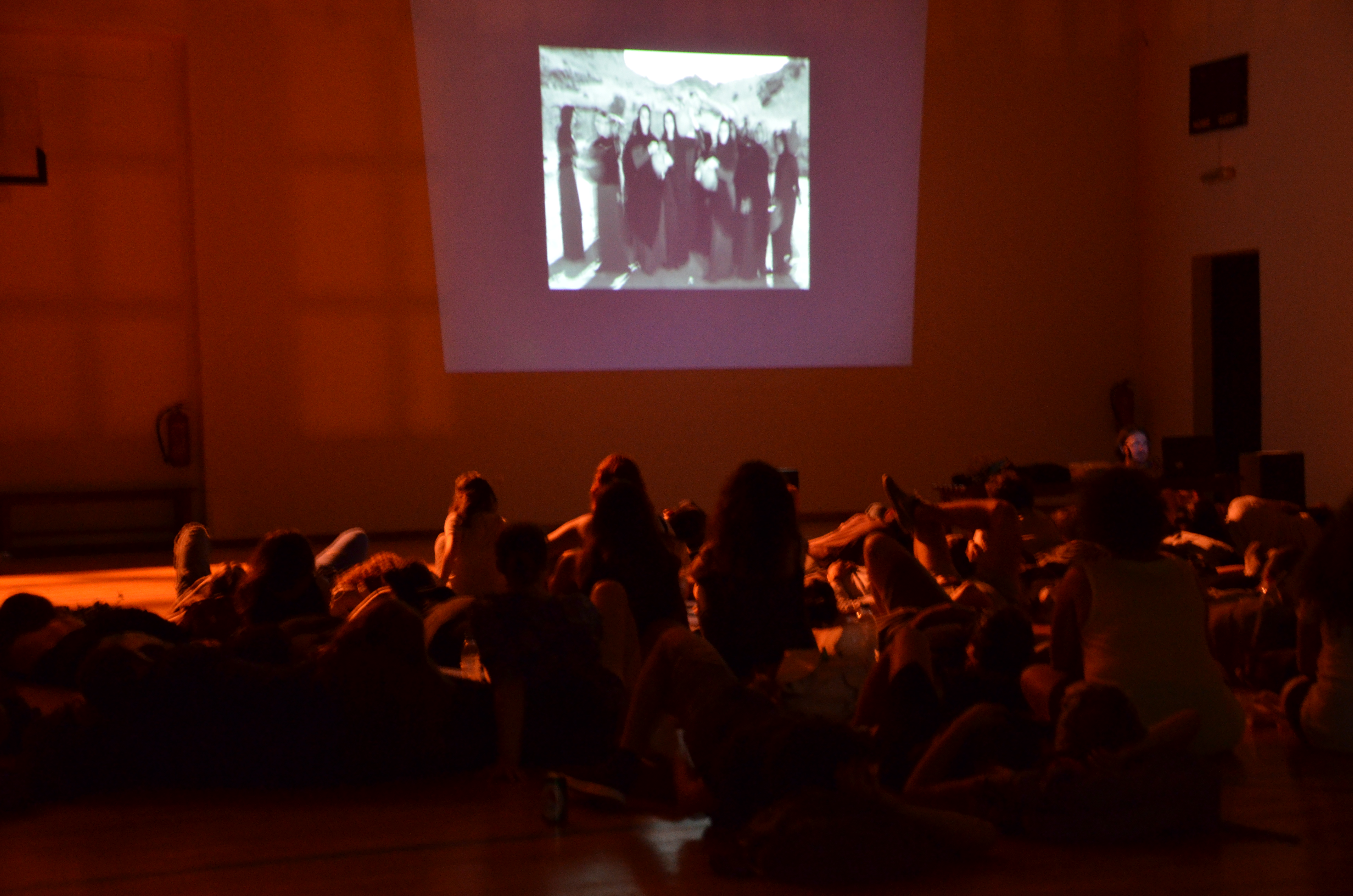
2018
LECTURE
Building civic identity on the stage of ancient drama
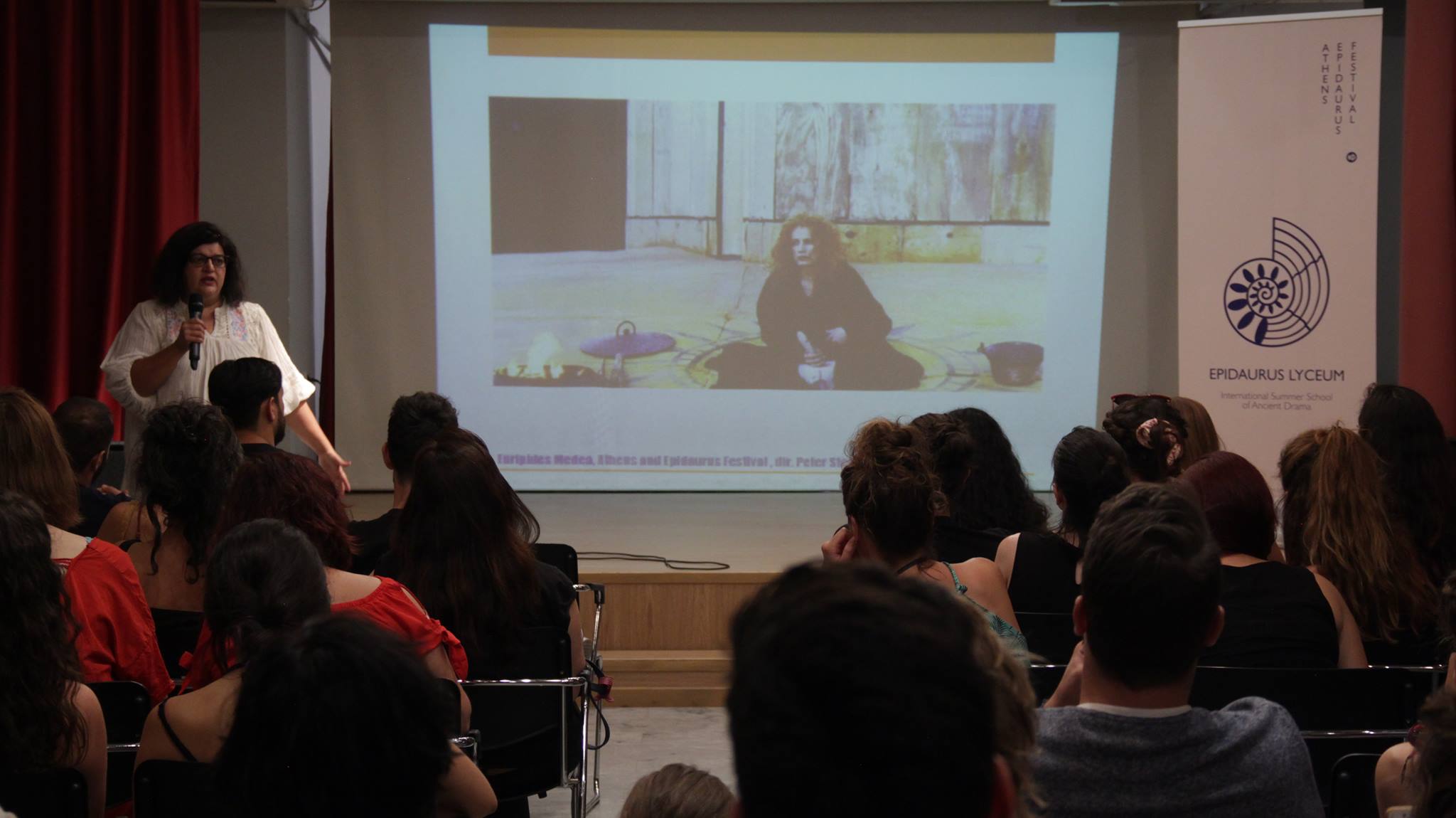
This lecture will examine the revival of ancient drama at open – air theatres from the late 19th century until today, with an emphasis on the leading role of the Ancient Theatre of Epidaurus during this period. Institutions, ideologies, artistic creation, audiences and local communities, conversions, deviations, statements and contradictions become part of an active dialogue, between the polis and the citizen, with theatre acting as a necessary intermediate, a body of authority and/or means of power to the people, through its institutional, ideological and artistic parameters.
2019
LECTURE
Chorus: All as one, one for all
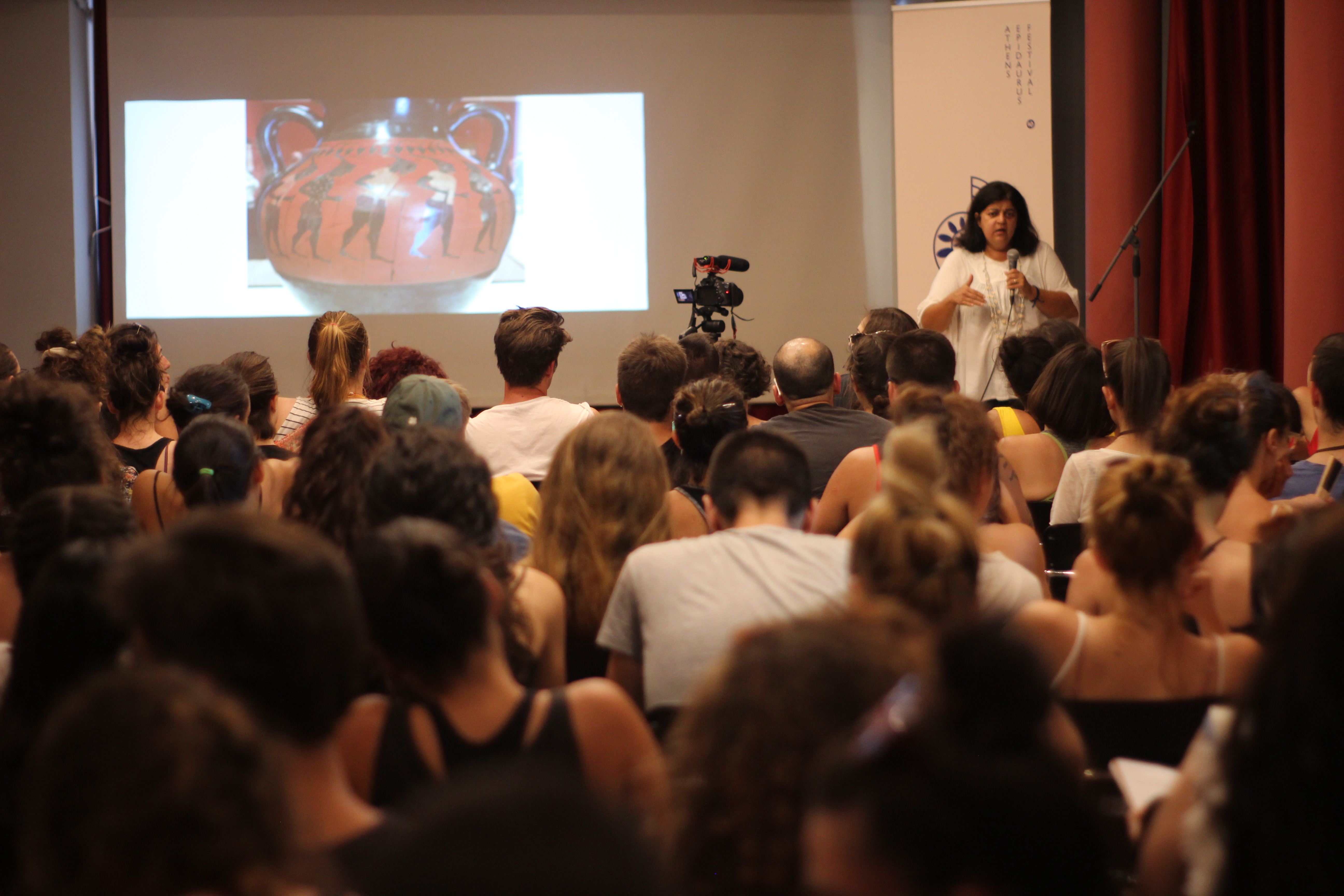
In the ancient Greek world, drama and democracy developed simultaneously, both signifying the responsibility of the individual within the community. Since the more systematic reinvention of ancient drama that flourished in the 20th century, theatre directors are always concerned with how they must deal with the Chorus. In this lecture, we will discuss many different directorial approaches to the Greek Chorus: The Chorus in unison, as an ensemble, as a group of individuals, as a group of people from which the protagonist emerges and returns to, reflecting an ideological, aesthetic or even convenient choice.





